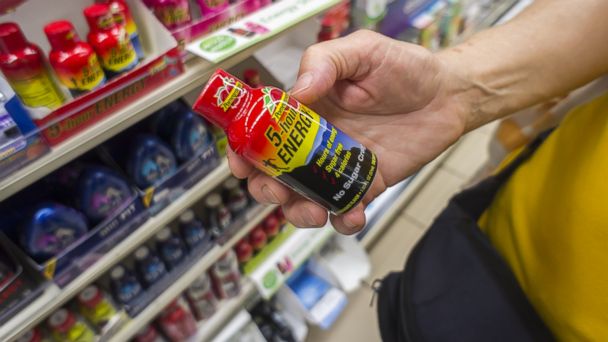5-Hour Energy Allegedly 'Refused' to Supply Full Documents in Investigation

A 5-Hour Energy drink is shown in a convenience store in New York. (Credit: Richard B. Levine via Newscom)
More than a year after the launch of a 33-state investigation into whether 5-Hour Energy made fraudulent health claims, the Oregon attorney general is putting her foot down.
Ads for the energy shots have claimed to be doctor-recommended and to cause "no crash;" and product information claims it is suitable for children 12 and older, but attorneys general in Oregon and five other states leading the investigation are questioning whether these claims are accurate. As a result, they filed subpoenas in 2013 to gather 5-Hour Energy's data, according to the petition filed in Oregon.
Oregon filed its request for the 5-Hour Energy data in January 2013, but got a version of that data in which the company left out important bits of information, according to a petition to enforce an investigative demand.
This, Oregon Attorney General Ellen Rosenblum writes, is not allowed, given that the company is legally required to respond with full, unaltered documents when it's given an official "civil investigative demand."
Rosenblum wrote that the company has "steadfastly refused" repeated requests for the full documents since April.
Read about the wrongful death lawsuit against Monster Beverage Corp.
According to a Dec. 27 petition submitted by 5-Hour Energy to "set aside, abate or modify" the investigative demand, it already supplied the states with 60,000 pages of documents spanning six years and 1,900 pages in response to follow-up questions.
"In fact, the ownership of 5-hour ENERGY's formulations provided all the ingredients - only redacting specific amounts, which it considers highly confidential and proprietary trade secrets," 5-Hour Energy spokeswoman Elaine Lutz wrote in an email to ABCNews.com.
5-Hour Energy used to advertise that it asked 3,000 doctors about the energy shot, and 73 percent of them recommended it. Forbes wrote in 2012 that the company's polling methodology was questionable, that 5-Hour had asked 5,000 doctors to review the drink and only half agreed to do so. The remaining 500 doctors the company claimed to have found online, according to Forbes.
When asked about the ad, Lutz said it was removed "more than a year ago" without elaborating why.
According to the Food and Drug Administration's adverse event reports, more than 90 people reported bad reactions after taking 5-Hour Energy from 2005 through 2012. That compares with 40 complaints against Monster Energy,13 against Rockstar Energy and 21 against Red Bull over roughly the same time period. 5-Hour Energy adverse event reports included heart attacks, convulsions and deaths. But these are reports by consumers - not conclusions by the FDA.
Still, 9 million bottles of 5-Hour Energy are sold each week, Lutz said. That adds up to about 468 million shots a year. Red Bull, by comparison, has said to Ad Age that it sold 5.2 billion cans worldwide in 2012.
"In direct contrast to other products, 5-hour ENERGY® is not marketed to children or marketed as a beverage," she said. "It was specifically designed for, and is exclusively marketed to, hardworking adults… When consumed according to recommended use guidelines, 5-Hour ENERGY® is a safe and effective dietary supplement."